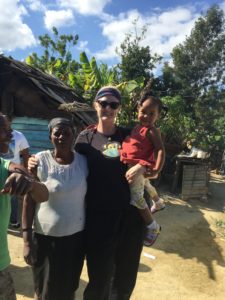Home is where the health is
As the costs of American health care continue to climb, so does the cry for innovative cost effective solutions. The business of American health care has paved the road to wellness with a monopoly game board of medical offices, hospitals, acute care facilities, and pharmacies.
A combination of medical missions to the Dominican Republic and an admiration for the amazing Lillian Wald and the Henry Street Settlement introduced me to the amazing world of home health visitation. Home visitation may hold great opportunities to decrease health costs, improve health outcomes, and help bring health home to many Americans.
The city of El Cercado is nested along the Haitian border in the mountains of the Dominican Republic. There is one hospital that serves the entire community, no rapid emergency medical response system in place, no pediatric trained specialists, and local physicians are sparsely distributed. Due to these challenges, much of health care in El Cercado happens in the community and home settings. I was graced with the opportunity to help care for the children and pregnant women of this amazing city- and will be forever grateful for the introduction into the benefits home visitation.
Home visitation is a home-based service that combats social determinants of health by providing support, information, and health assistance to those in need. Prior to the Patient Protection and Affordable Care Act (ACA), home visitation programs lacked federal support and functioned via fragmented funding sources. Evidence supports that home visitation to high-risk mothers and their young children correlates with increased maternal employment, better prenatal health, decreased incidence of childhood injuries, and enhanced school readiness.
With interventions aimed to assist impoverished families, pregnant women, and young children; the federally funded Maternal, Infant, and Early Childhood Home Visitation (MIECHV) Program reached 145,000 families in 2015. Financial support from the ACA helped to set a strong foundation for home visitation programs.
Further innovation and expansion of home visitation programs to reach a more diverse network of families could help improve health outcomes, decrease health care costs, and de-institutionalize health care. Additionally, both palliative and hospice care represent alternative forms of home visitation that allow health care to happen at home. Under the new administration and Congress, there is a strong possibility for changes in funding priorities which are likely to alter resources for many social service initiatives. While home visitation programs represent tremendous transformative capacity, they are not sustainable without solid federal financial commitment.
As the costs of American health care




